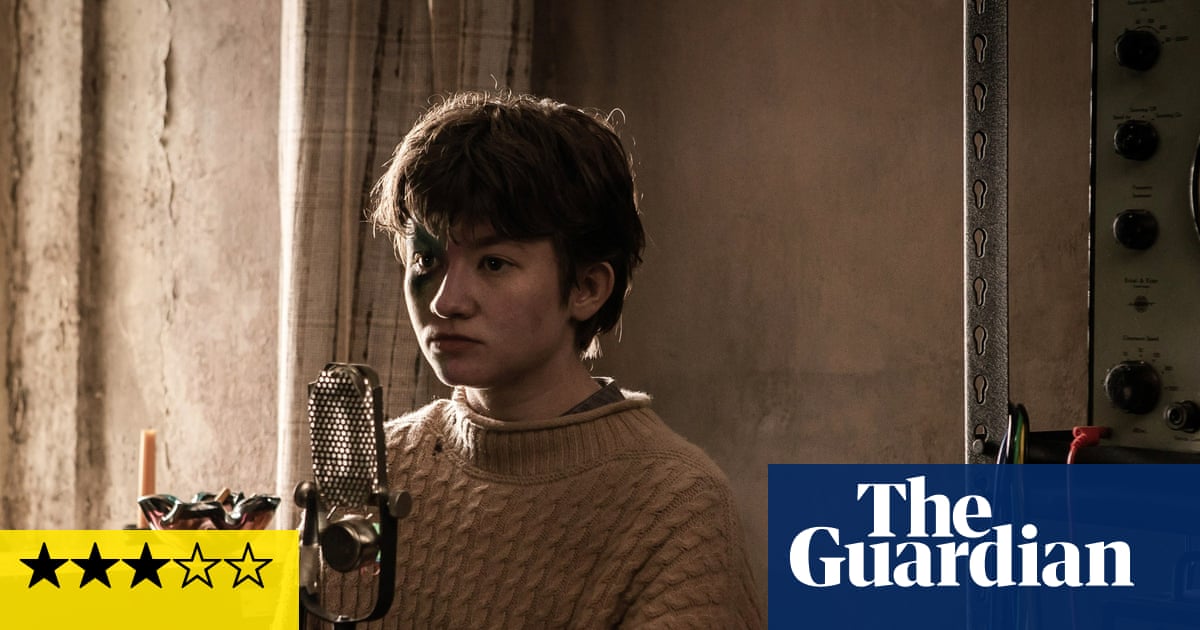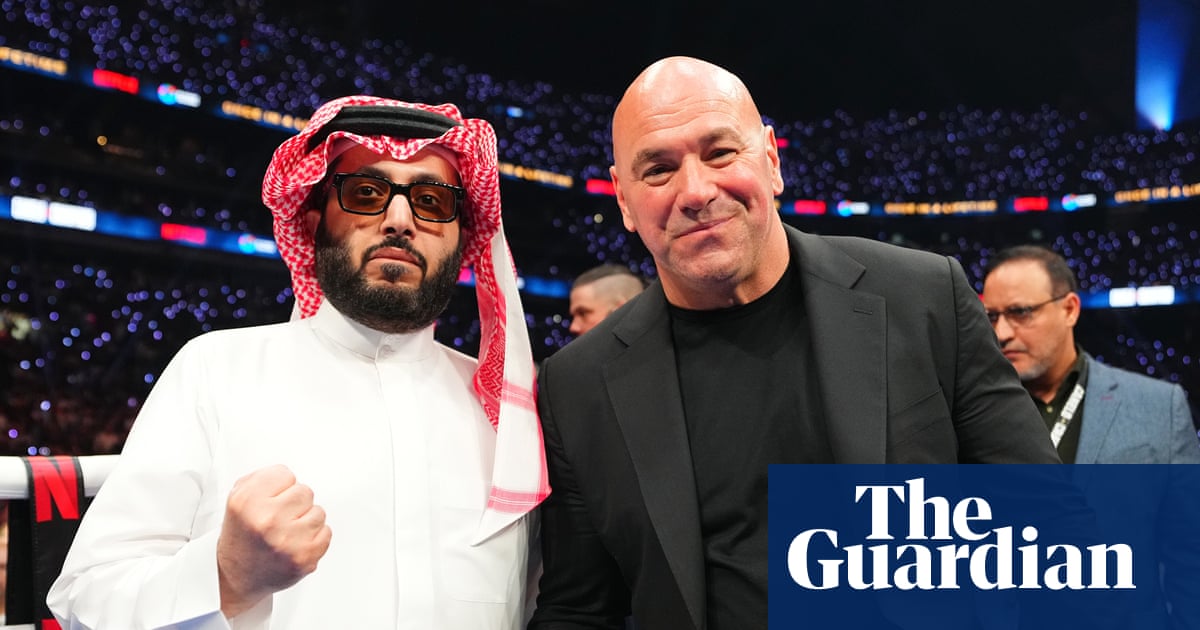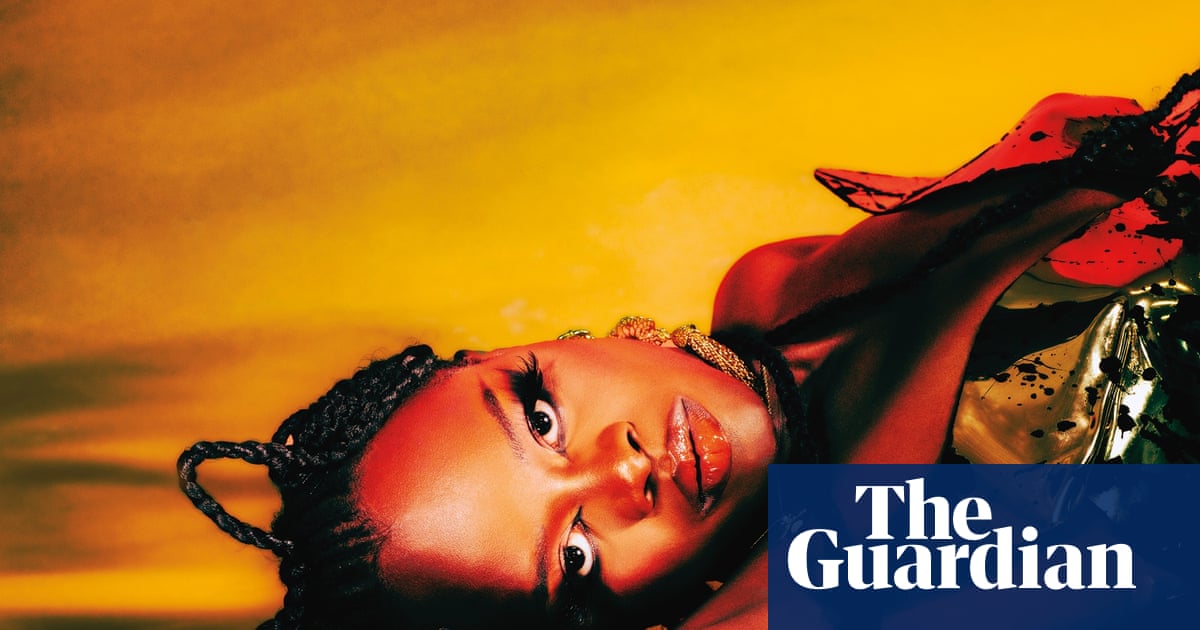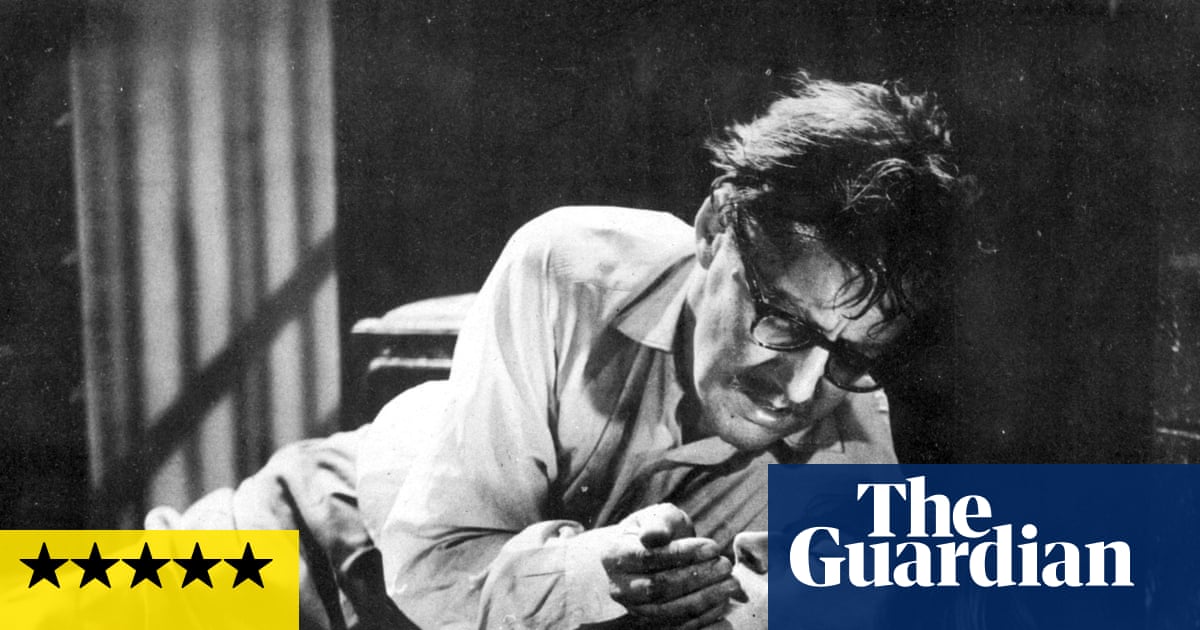They have sold out venues on both sides of the Atlantic. Their first-ever gig was opening for a former member of Arcade Fire. Their 2024 album has been acclaimed as sounding like a lost classic of 1970s rock. Their two top tracks, Bright and Masquerade, have notched up 700,000 streams on Spotify. In fact, by the numbers, they’re having one of the most buzzy rock debuts of recent years. Yet they don’t really exist. They don’t even have a name.
The band is in fact the unnamed five-piece featured in Stereophonic, a hugely successful, Tony-winning drama, currently playing in London’s West End. Written by David Adjmi, with music by former Arcade Fire member Will Butler, Stereophonic earned five stars from the Guardian, which praised its “moments of creative transcendence, including a late-night epiphany so electrifying that the sound waves will excite your internal organs”.
Making it in the music industry is often framed as a triumph of individual artistry and hard sweat. Yet a huge number of bands invented for novels, TV shows and films have ended up with real songs and even real hits. Spinal Tap, born of the 1984 mockumentary, landed a Top 40 single – and a reunion concert, thanks to the recent sequel, which keeps the silliness dialled up to 11. The Commitments, the group from Roddy Doyle’s 1987 novel, have enjoyed the sort of success and longevity many flesh-and-blood acts would kill for, from a chart-topping album (the film soundtrack) to international tours.
More recently, Aurora, the debut album from Daisy Jones and the Six, was reviewed in Pitchforkwhen released as the soundtrack to Amazon’s TV adaptation of the 2019 novel by Taylor Jenkins Reid. Meanwhile Netflix’s animation KPop Demon Hunters, about rival bands, became the platform’s most-watched film ever.
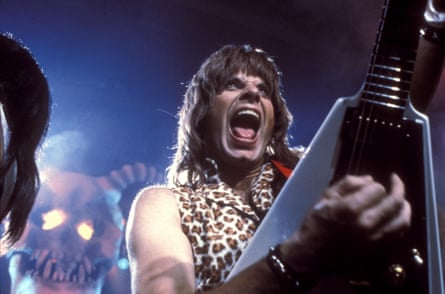
Both Daisy Jones and the Six and the unnamed band of Stereophonic are often likened to Fleetwood Mac for their 1970s settings, transatlantic lineups and romantic turbulence. Ken Caillat, producer of Fleetwood Mac’s Rumours album, even sued the makers of Stereophonic for similarities to his memoir, settling out of court.
Rather than any one act, though, Adjmi says he was drawn to quasi-mythological legends of rock music (the seed was Led Zeppelin’s Babe I’m Gonna Leave You) and the band members’ relationships behind the scenes. “I was very interested,” he says, “in this bleed between personal and public, professional and romantic.”
As well as Fleetwood Mac, Adjmi looked to the Mamas and Papas, Arcade Fire and the Metallica-in-therapy documentary Some Kind of Monster. He also drew on his experience making theatre: within a production, as with a band, egos have to be managed “in service of this larger thing”. For that reason, Adjmi resisted the “tired tropes” of rock star rebelliousness and hell-raising. “To be successful,” he says, “you can’t just be throwing pianos out the window.” And cocaine, his research showed, was treated by 70s bands as something akin to coffee: “Just another way to wake up.” Hence the one-kilo bag that gets casually dipped into in his play.
Set exclusively in a recording studio, Stereophonic is in some ways “an office drama”, Adjmi says. The band came alive to him not in their music but in the downtime between takes, “eating Chinese food and chatting about crispy noodles”. For a non-musician, however, representing the recording process required a steep learning curve: “I watched every VH1 documentary,” he says. Soon, themes emerged – mostly to do with keeping the music flowing while keeping the musicians under control. This inspired the play’s overarching tension between the banality and alchemy of artistic creation. Butler was tasked with delivering the music and lyrics. One early brief ran: “You’ll hear something transcendent – then someone will stop it for no good reason.”
Butler tried to write from the characters’ perspectives, reflecting not the era’s defining songs but the songs they would have grown up with. “Like, Holly heard this reggae song she really liked at Eric Clapton’s house when he was being a total piece of shit. Then they saw Sylvester open for David Bowie in 1975 in San Francisco.” Butler even projected forward, imagining the band as a formative influence for Michael Stipe, and their seminal album on repeat in the Cobain family home.
It wasn’t enough for the songs to be both good and consistent with the time, he points out – they also had to serve the play, bolster the drama and justify the focus on this particular band. “The whole play,” he says, “they’re talking, talking, talking. Then they play music and you’re like, ‘Oh, it makes sense – this is why they’re here.’ Those moments of music had to have a hyper-reality.”
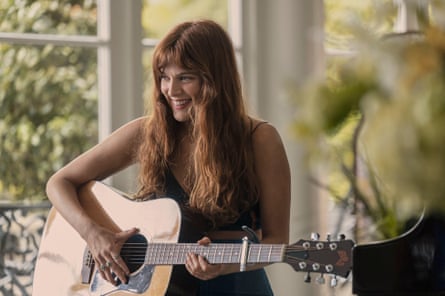
For novelists, the challenge is different: to portray convincingly a group that will probably never be heard. Roddy Doyle was drawn to the idea of writing about a band as “an excuse to bring a group of people together”. He also considered a football team, but dismissed that as too difficult. The Booker-winning Doyle is not a musician and has never been part of a band. What made The Commitments work was his choice of perspective. The novel follows Jimmy Rabbitte, an opinionated outsider who “knows his music” and is brought in to manage the band. “By allowing him to just be a fan,” says Doyle, “I was on my way.”
Then a 27-year-old teacher in Dublin, Doyle took just six months to write the novel – and one to come up with the band’s name. “I liked the mock earnestness. It wasn’t 100 miles away from bands like the Temptations.” He’d been listening to soul compilation tapes, which gave him the idea “to superimpose this Black American form on to Dublin”.
A soul lineup also allowed him more characters – thus more tension. Veteran trumpeter Joey “The Lips” Fagan, was drawn from the Specials’ Rico Rodriguez and Saxa of the Beat, while their look of mismatched formal wear was chosen for comedic contrast. “There’s something just utterly daft about the monkey suit.”
For their first gig, Doyle put readers in the crowd with Rabbitte, sidestepping all that technical detail regarding instruments. The rest, he was free to imagine. “Trying to capture the sound of the bass,” he says, “the guitar and the Dublin accent singing the lyrics was a huge part of the fun.”
He wrote to those soul tapes right into the night, his ear against the speaker to catch the lyrics after turning the volume down because his neighbour complained. “It would be so much easier now,” he says. “All I’d have to do is Google.” He’d sought to avoid the “earnestness” of music journalists, who dismissed his self-published novel – until Elvis Costello endorsed it in Irish music bible Hot Press. “He said, ‘If you want to know what it was like, read The Commitments.’”
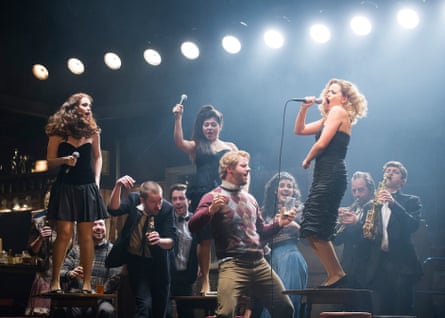
One of the critics’ objections was that the Commitments found success too quickly. Doyle scoffs. “I just thought, ‘Ya fuckin’ eejits. You think the reader’s going to hang around for 20 years till they’re good enough on the trumpet?’”
The Commitments went on to have a “huge life”, with the 1991 film and, later, a successful musical. Doyle co-wrote the film’s script but sat casting out. He remembers feeling trepidatious: “These are people taking on voices that you had in your head for years.” At first they “jarred slightly”, he says, but once he relaxed, “it was a terrific experience”.
The Flaming Dildos, by contrast, can be heard only in Jennifer Egan’s imagination, and that of readers of her Pulitzer prize-winning novel, A Visit From the Goon Squad. Egan had been waiting for a chance to write about late 1970s San Francisco punk. As a teenager, she’d been “kind of a wallflower” on the scene, attending gigs at fabled tiny nightclub Mabuhay Gardens. “In terms of a milieu, a vibe, an environment,” she says, “it was just catnip.” She was delighted when the band name popped into her head: “It’s laughably dumb, but it has a kind of snap to it.”
Crime, the Avengers and the Germs – the more obscure bands Egan saw play – are namechecked as the Dildos’ local idols. “The Mab” is their regular haunt. Egan’s memories of its expensive bar and “graffiti-splattered” bathroom added realism. She also drew from “crappy videos” of these bands’ performances found online. Suitably “resaturated” in the music of the time, Egan then wrote What the Fuck? – the Dildos’ “best song”, which they practice in guitarist Scotty’s garage. “I had a ball,” she says gleefully. “The lyrics were a lot of fun: both plausible, I think, as a punk rock song and obviously pretty sophomoric.” She even came up with a melody, but declines to sing it to me. “I think it’s best on the page. That’s the God I’m serving in the end.”
Bryan Lee O’Malley, the Canadian behind the Scott Pilgrim graphic novel series, likewise wrote lyrics for a song his hero plays with his garage band Sex Bob-Omb. A musician himself, O’Malley even printed the guitar chords so readers could play along. It was all a ploy, he says, “to keep the book in people’s hands after reading it. The song’s tremendously terrible if you actually play it.”
O’Malley was writing about his own experiences as an indie kid in Toronto. “It was a world I knew so well. I could tackle it from every angle.” Pilgrim’s bass, a Rickenbacker 4003, was a model O’Malley had lusted after in a shop window, knowing he “could never afford” it. So there was “a bit of wish fulfilment” involved – but he also drew inspiration from Beck, Harold Sakuishi’s manga series about a rock band. “The way he would draw them playing – you could feel the songs, even though you could never hear them.” When Sakuishi’s songs were recorded for an anime TV series, O’Malley hated the results. “That isn’t what they sounded like in my mind.”
When it came to giving an actual sound to Sex Bob-Omb for Scott Pilgrim vs the World, Edgar Wright’s 2010 film adaptation, O’Malley referenced the loud, abrasive yet poppy songs of Ohio lo-fi band Times New Viking. An esteemed duo – producer Nigel Godrich and Beck (the musician) – were tasked with making them a reality. “It felt like someone was going to the highest levels to make my dreams come true,” says O’Malley. “Which was cool – and a little surreal.” O’Malley now can’t distinguish between the songs as he’d imagined them and those available to stream. “We Are Sex Bob-Omb has almost 30m plays on Spotify,” he says in disbelief.
The band in Stereophonic, says Butler, only became “real” to him once the cast was in place. “It was like a TV show about making a band,” says the musician, who took the actors to his studio to work on their songs but also to give them “the experience of hanging out in the kitchen while there’s some stupid tech thing to fix”.
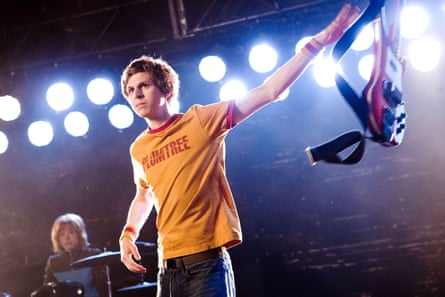
Their baptism by fire was to open for his new band, Will Butler + Sister Squares, at the party for the release of their self-titled album. “The girls all hated it,” he laughs. “The boys were really into it.” In the script, he points out, Diana mentions having played Madison Square Garden. “I wanted them to hear how loud a show is. To do that even in front of 200 people, you realise how horrible it would feel in front of 10,000.”
Now the cast have performed to many times that number on Broadway, while the original cast’s recording is available as an album. Adjmi is tickled by “the meta aspect” of his fictional band becoming reality. Stereophonic’s success, he argues, reflects a nostalgia for more authentic, analogue pop. “There’s a sort of naivete, or innocence, that I am pining for in the 70s,” he says.
Scott Pilgrim – also adapted for TV in 2023 – likewise channels a time when joining garage bands was a rite of teen passage and local battles of the bands were life or death. Music and culture has changed so much since then, says O’Malley, that “maybe there’s some sort of nostalgic dive into the past”. He remains bemused by the long life of his comic, which he started “as a silly shit-post for my friends”.
Doyle, meanwhile, delights in the Commitments’ legacy. “There are people,” he says, “who assume that Mustang Sally is a traditional Irish song.”

 3 months ago
63
3 months ago
63



